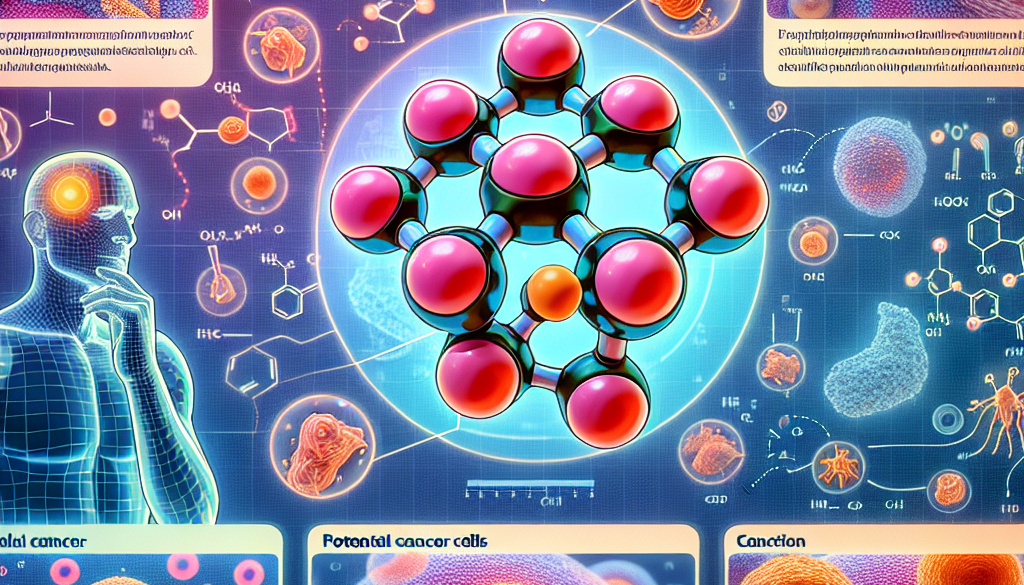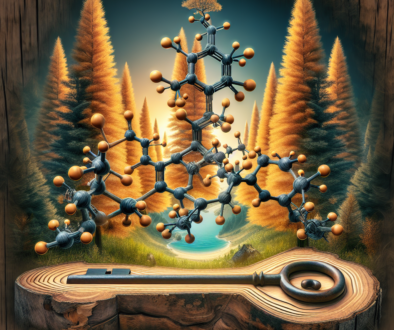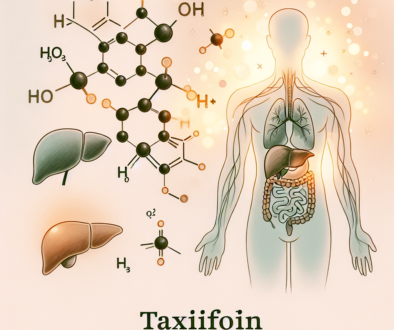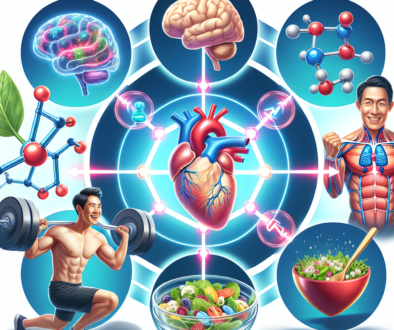Taxifolin: Cancer Prevention Insights
-
Table of Contents
- Taxifolin: Unveiling Its Potential in Cancer Prevention
- Understanding Taxifolin and Its Properties
- The Mechanisms Behind Taxifolin’s Anticancer Effects
- Scientific Studies and Clinical Trials
- Case Studies: Taxifolin in Action
- Statistics: The Impact of Flavonoids on Cancer Rates
- Integrating Taxifolin into Cancer Prevention Strategies
- Conclusion: The Promising Horizon of Taxifolin in Cancer Prevention
- Discover ETprotein’s High-Quality Protein Products
Taxifolin: Unveiling Its Potential in Cancer Prevention
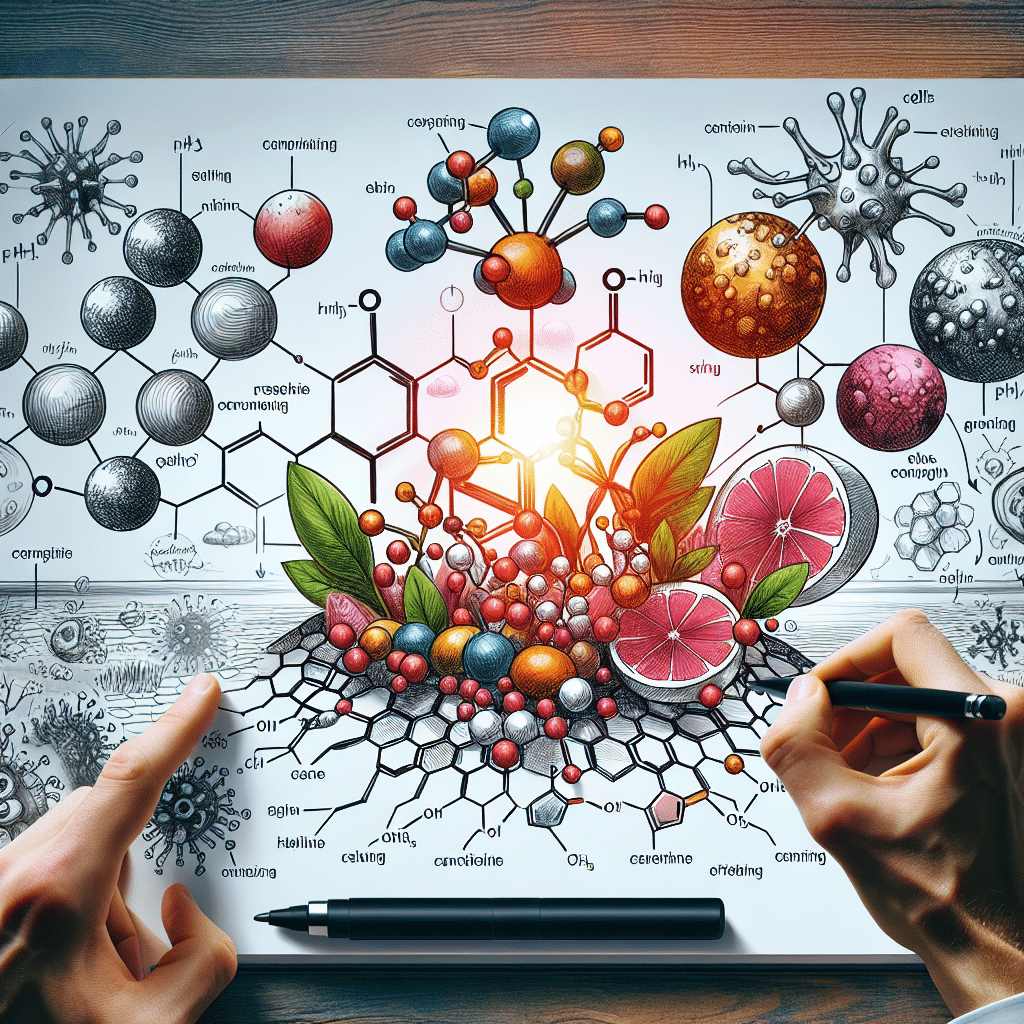
Cancer remains one of the most formidable health challenges of our time, with millions of new cases diagnosed annually worldwide. The quest for effective cancer prevention strategies has led researchers to explore the potential of natural compounds. Among these, taxifolin, a bioactive flavonoid, has emerged as a promising candidate. This article delves into the insights surrounding taxifolin and its role in cancer prevention, supported by scientific research and studies.
Understanding Taxifolin and Its Properties
Taxifolin, also known as dihydroquercetin, is a flavonoid naturally found in various plants, including onions, French maritime pine bark, and milk thistle. It is recognized for its potent antioxidant properties, which play a crucial role in its therapeutic potential. Taxifolin’s ability to scavenge free radicals and reduce oxidative stress is central to its health benefits, which extend beyond cancer prevention to include cardiovascular protection and anti-inflammatory effects.
The Mechanisms Behind Taxifolin’s Anticancer Effects
Research has identified multiple mechanisms through which taxifolin exerts its anticancer effects:
- Antioxidant Activity: By neutralizing free radicals, taxifolin protects cells from DNA damage that can lead to cancer.
- Cell Cycle Regulation: Taxifolin can influence the cell cycle, inducing cell cycle arrest and preventing the proliferation of cancer cells.
- Apoptosis Induction: It can trigger apoptosis, the programmed cell death, in cancer cells, thereby inhibiting tumor growth.
- Anti-inflammatory Action: Chronic inflammation is a known risk factor for cancer, and taxifolin’s anti-inflammatory properties may help reduce this risk.
- Angiogenesis Inhibition: Taxifolin has been shown to inhibit angiogenesis, the formation of new blood vessels that tumors need to grow and spread.
These mechanisms highlight taxifolin’s multifaceted approach to combating cancer at various stages of development.
Scientific Studies and Clinical Trials
Several studies have explored taxifolin’s anticancer potential. For instance, research published in the “International Journal of Molecular Sciences” demonstrated taxifolin’s efficacy against liver cancer cells. Another study in the “Journal of Natural Products” found that taxifolin inhibited the growth of breast cancer cells. Clinical trials are ongoing to further understand the implications of these findings for cancer prevention and treatment.
Case Studies: Taxifolin in Action
Case studies have provided anecdotal evidence of taxifolin’s benefits. For example, a case involving a patient with skin cancer showed a reduction in lesion size following topical application of taxifolin. While such cases are promising, they underscore the need for more extensive clinical research to validate these outcomes.
Statistics: The Impact of Flavonoids on Cancer Rates
Epidemiological studies have suggested a correlation between flavonoid intake and reduced cancer rates. Populations with higher consumption of flavonoid-rich foods tend to exhibit lower incidences of certain cancers, hinting at the protective role of compounds like taxifolin.
Integrating Taxifolin into Cancer Prevention Strategies
While taxifolin is not a standalone cure for cancer, it can be integrated into broader prevention strategies:
- Dietary Supplementation: Incorporating taxifolin supplements into one’s diet may boost overall antioxidant levels and reduce cancer risk.
- Healthy Lifestyle Choices: Combining taxifolin intake with a balanced diet, regular exercise, and avoidance of known carcinogens can enhance its preventive effects.
- Complementary Medicine: Taxifolin can complement conventional cancer therapies, potentially improving outcomes and reducing side effects.
It is important to consult healthcare professionals before adding taxifolin or any supplement to your regimen, especially for those with pre-existing health conditions or undergoing cancer treatment.
Conclusion: The Promising Horizon of Taxifolin in Cancer Prevention
In conclusion, taxifolin presents a compelling case as a natural compound with significant potential in cancer prevention. Its antioxidant, anti-inflammatory, and antiproliferative properties, backed by scientific research, make it a noteworthy addition to the arsenal against cancer. While further studies and clinical trials are necessary to fully understand its capabilities and applications, taxifolin’s current insights offer hope for those seeking natural preventive measures against this pervasive disease.
Discover ETprotein’s High-Quality Protein Products
In addition to exploring natural compounds like taxifolin for cancer prevention, maintaining a healthy diet rich in protein is essential for overall well-being. ETprotein offers a range of high-quality protein products that can complement a balanced diet and support health. Their organic, non-GMO, allergen-free protein powders, including rice, pea, and seed-based proteins, are ideal for those seeking plant-based nutrition options. Moreover, ETprotein’s L-(+)-Ergothioneine products provide an additional layer of antioxidant support, which is beneficial for maintaining cellular health and potentially reducing cancer risk.
For individuals interested in enhancing their dietary regimen with premium protein and antioxidant supplements, ETprotein’s offerings represent a trustworthy choice. Their commitment to quality and customer satisfaction makes them a preferred supplier for consumers and businesses alike.
About ETprotein:
ETprotein, a reputable protein and L-(+)-Ergothioneine (EGT) Chinese factory manufacturer and supplier, is renowned for producing, stocking, exporting, and delivering the highest quality organic bulk vegan proteins and L-(+)-Ergothioneine. They include Organic rice protein, clear rice protein, pea protein, clear pea protein, watermelon seed protein, pumpkin seed protein, sunflower seed protein, mung bean protein, peanut protein, and L-(+)-Ergothioneine EGT Pharmaceutical grade, L-(+)-Ergothioneine EGT food grade, L-(+)-Ergothioneine EGT cosmetic grade, L-(+)-Ergothioneine EGT reference grade and L-(+)-Ergothioneine EGT standard. Their offerings, characterized by a neutral taste, non-GMO, allergen-free attributes, with L-(+)-Ergothioneine purity over 98%, 99%, cater to a diverse range of industries. They serve nutraceutical, pharmaceutical, cosmeceutical, veterinary, as well as food and beverage finished product distributors, traders, and manufacturers across Europe, USA, Canada, Australia, Thailand, Japan, Korea, Brazil, and Chile, among others.
ETprotein specialization includes exporting and delivering tailor-made protein powder and finished nutritional supplements. Their extensive product range covers sectors like Food and Beverage, Sports Nutrition, Weight Management, Dietary Supplements, Health and Wellness Products, and Infant Formula, ensuring comprehensive solutions to meet all your protein needs.
As a trusted company by leading global food and beverage brands and Fortune 500 companies, ETprotein reinforces China’s reputation in the global arena. For more information or to sample their products, please contact them and email sales(at)ETprotein.com today.

